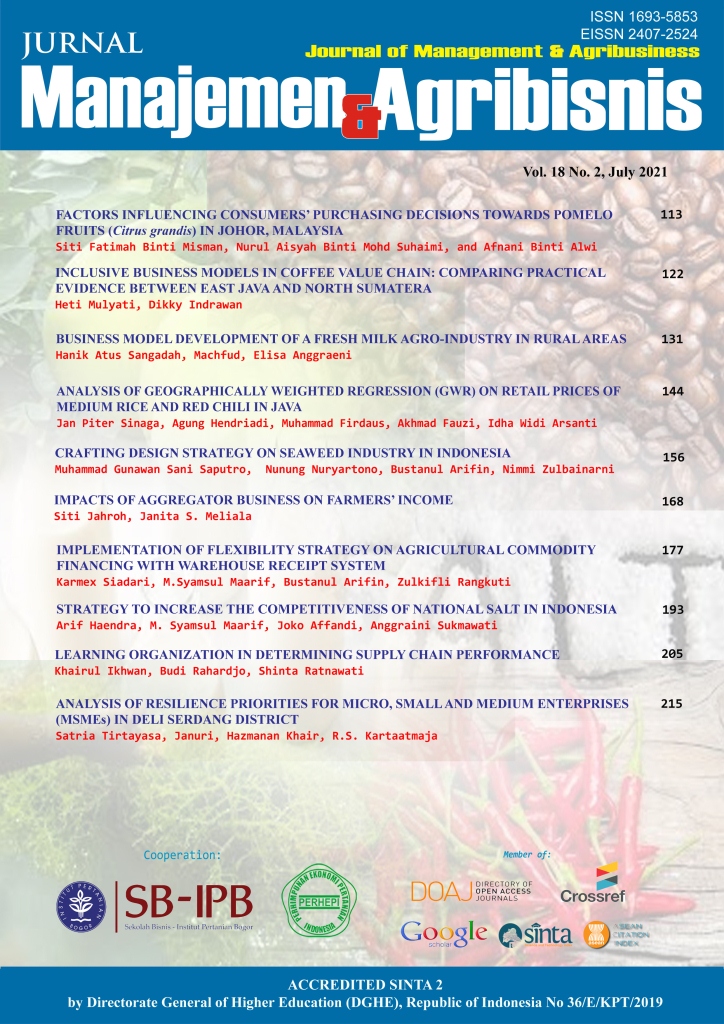Strategy to Increase The Competitiveness of National Salt in Indonesia
Abstract
Salt is a strategic commodity and political commodity in Indonesia. However, during the research period, namely in 2015-2019, the national salt production has not been able to meet the demand for salt. This has resulted in national salt consumption still being dependent on imports. This results in a potential dependence on imported salt which can hamper the competitiveness of domestic salt. Local people are increasingly cornered and find it difficult to be competitive. This study aims to analyze the competitiveness of the national salt industry and formulate efforts to increase the competitiveness of the national salt industry. The method used in this research is the Revealed Comparative Advantage (RCA) and Revealed Symmetric Comparative Advantage (RSCA) analysis and the Analytical Hierarchy Process (AHP) method which is one of the analytical tools used to assist managerial decision-makers. The data used in this study are primary data in the form of interviews and questionnaires and secondary data obtained from literature studies. The results showed that the salt commodity was not competitive. This is because Indonesia's salt commodity does not have a comparative advantage.
Keywords: AHP, competitiveness, salt industry, RCA, strategy
Authors
Authors who publish with this journal agree to the following terms:
- Authors retain copyright and grant the journal right of first publication with the work simultaneously licensed under a Creative Commons Attribution License that allows others to share the work with an acknowledgement of the work's authorship and initial publication in this journal.
- Authors are able to enter into separate, additional contractual arrangements for the non-exclusive distribution of the journal's published version of the work (e.g., post it to an institutional repository or publish it in a book), with an acknowledgement of its initial publication in this journal.
- Authors are permitted and encouraged to post their work online (e.g., in institutional repositories or on their website) prior to and during the submission process, as it can lead to productive exchanges, as well as earlier and greater citation of published work (See The Effect of Open Access).

